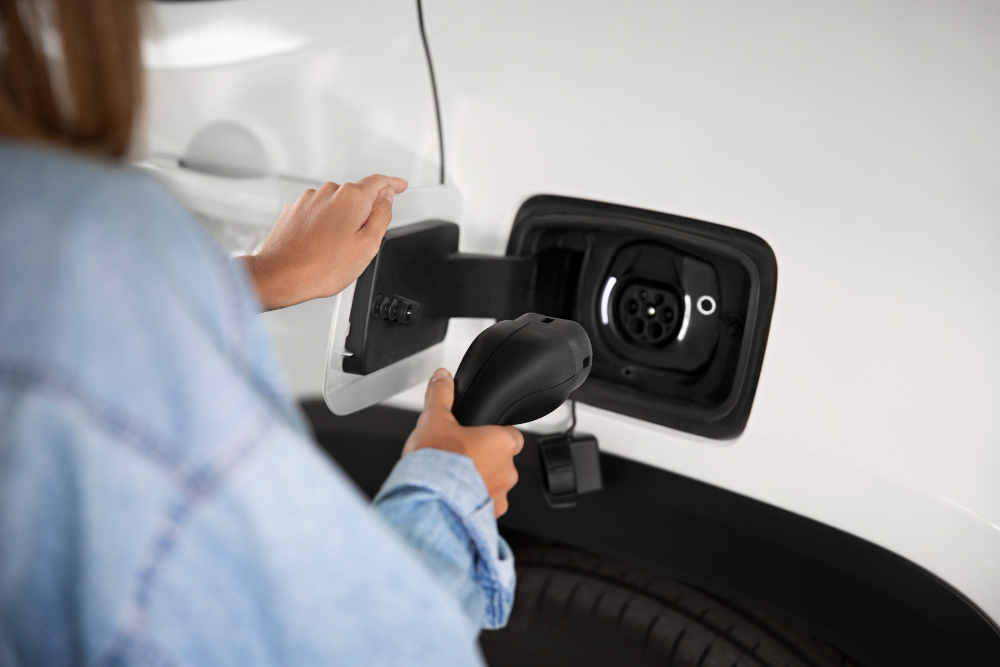Whether you’re at a gas station filling up your car or overseeing a complex industrial operation, you’ve likely encountered a fuel nozzle—a vital component in fuel dispensing systems. This blog explores the role of the fuel nozzle, its design, and why it’s so crucial to efficient and safe fueling operations.
What Is a Fuel Nozzle?
A fuel nozzle is a device used to control the flow of fuel from a dispenser into a vehicle’s fuel tank or another container. It functions as a valve and delivery system, allowing for precise control over fuel flow and reducing the risk of spills, vapor emissions, and safety hazards.
Key Functions of a Fuel Nozzle
-
Flow Control: Fuel nozzles regulate how much fuel is delivered, preventing overflows and minimizing waste.
-
Automatic Shut-Off: Most modern fuel nozzles are equipped with a shut-off mechanism that halts fuel flow once the tank is full.
-
Compatibility with Fuel Types: Different nozzles are designed for various fuels—gasoline, diesel, aviation fuel, and more—ensuring safe and efficient delivery.
-
User Safety: Fuel nozzles are engineered to minimize static electricity, reduce vapor release, and provide ergonomic handling.
How Does a Fuel Nozzle Work?
A fuel nozzle is designed with internal components like:
-
A spout that directs fuel into the tank.
-
A valve system to control the opening and closing of the fuel flow.
-
A sensing port (in automatic nozzles) that detects rising fuel levels in the tank, triggering shut-off.
The automatic shut-off function works by sensing the change in pressure when the fuel level covers the sensing port, effectively “cutting off” the flow without user intervention.
Types of Fuel Nozzles
-
Manual Nozzles: These require the user to start and stop the flow manually. They’re commonly used in basic applications.
-
Automatic Nozzles: Equipped with a shut-off mechanism, these are standard at commercial fuel stations and reduce risks of overflow.
-
High-Flow Nozzles: Designed for large vehicles like trucks or industrial machinery, these deliver fuel at higher rates.
-
Specialty Nozzles: Custom-built for aviation, marine, or other specialized fueling needs.
Why Fuel Nozzles Matter
-
Environmental Protection: Modern fuel nozzles help prevent vapor emissions and fuel spills, protecting the environment.
-
Safety: Properly designed fuel nozzles reduce static discharge and fire risks during fueling.
-
Efficiency: By controlling flow rates and preventing waste, fuel nozzles enhance the speed and efficiency of fueling operations.
-
Cost-Effectiveness: Automatic shut-off and precise flow control reduce fuel loss and operational costs.
Innovations in Fuel Nozzle Technology
Advancements in fuel nozzle design include:
-
Vapor Recovery Systems that capture escaping fuel vapors during refueling.
-
Ergonomic Designs that make nozzles easier and safer to handle.
-
Smart Nozzles with digital sensors and data logging for fuel management systems.
Conclusion
A fuel nozzle might seem like a simple device, but it’s a critical component in fueling systems. From its ability to control fuel flow to innovations that reduce environmental impact, the fuel nozzle plays a key role in how we power vehicles and machinery every day. Whether at a gas station or an industrial fueling facility, the humble fuel nozzle is at the heart of safe, efficient, and responsible fueling.

